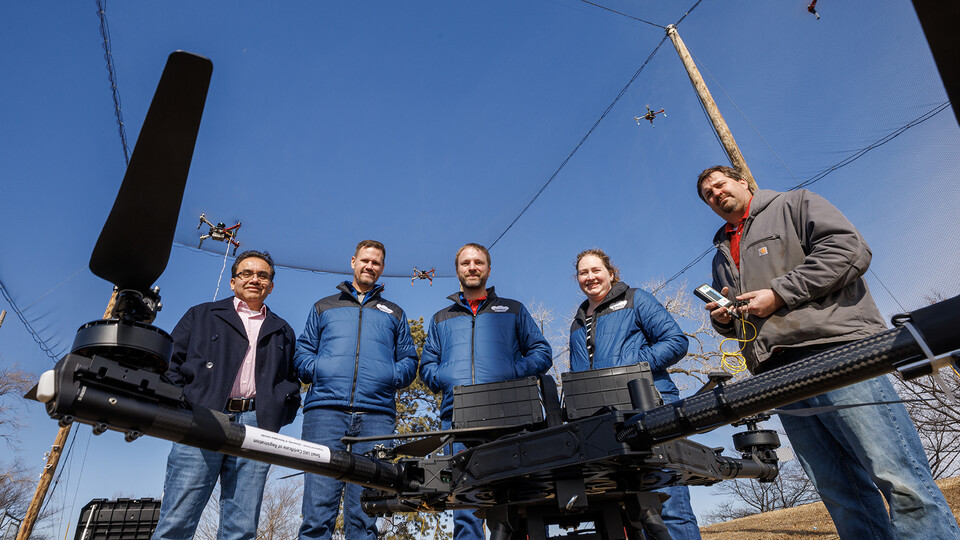
by Tiffany Lee | Research and Economic Development
The University of Nebraska–Lincoln’s Nebraska Intelligent MoBile Unmanned Systems Lab, known as NIMBUS, has received nearly $2 million in funding to advance its work on an integrated suite of robotics and drone technologies that will push forward research in the state and around the world.
Two grants — one from the National Science Foundation, the other from the U.S. Department of Agriculture’s National Institute of Food and Agriculture — will enable NIMBUS researchers to push the boundaries of what robots can do and expand human understanding of how climate change is impacting agricultural, aquatic and wildland systems. Both projects will offer graduate and undergraduate students training opportunities at the forefront of robotics research.
Brittany Duncan, Ross McCollum Associate Professor of computing, is leading the three-year NSF project, which is a collaboration with Ken Tape of the University of Alaska Fairbanks. The team, which also includes Husker researchers Justin Bradley and Carrick Detweiler, will develop an integrated robot system to collect ecosystem data in the Arctic tundra.
Over the past 20 years, climate change has made the Arctic more hospitable to North American beavers. Their colonization has changed the area’s environment and topography — most notably, their behavior is melting permafrost, which releases greenhouse gases into the air. These changes have important environmental implications but are difficult to study because of the remote terrain, need for underwater measurements and the beavers’ mixed aquatic-terrestrial habitats.
To overcome these hurdles, the NIMBUS team is devising a system where drones, boats and deployable underwater sensors work in tandem to reach these hard-to-access beaver ponds. The researchers have worked on all three types of unmanned vehicles before, but this is the first time they’ll integrate them in this way.
Follow the complete story at:
More details at: https://news.unl.edu/newsrooms/today/article/nimbus-receives-2m-to-advance-robotics-role-in-climate-change-research/